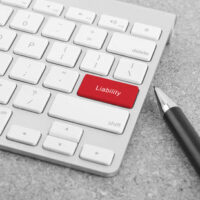What to do After a Slip and Fall Accident

When many people think about personal injury claims they imagine serious car accidents, or injuries caused by dangerous consumer products. While these types of accidents can and do occur at a surprisingly high rate, the reality is that some of the most common accidents behind personal injury claims are actually slip and fall accidents. These types of accidents, which occur as a result of a landowner’s failure to make his or her property safe for visitors, can cause serious injuries ranging from broken bones and lacerations to traumatic brain injury and nerve damage. If you were injured after falling on someone else’s property through no fault of your own, you could be entitled to compensation. Please contact our dedicated premises liability attorneys today to learn more.
Seeking Medical Attention
After being involved in a slip and fall accident, it is important to take certain steps, including seeking medical attention, especially for those who have suffered serious injuries. Even those who don’t require emergency care should still go see a doctor as soon as possible, as many injuries don’t actually reveal themselves for days or weeks after an accident. Taking this step can ensure that injured parties begin receiving treatment as soon as possible and can also begin the process of creating a medical record linking the accident to the injuries in question.
Filing an Incident Report
Once the immediate safety of all parties has been ensured, slip and fall accident victims should consider filing an incident report with the property manager where the injury occurred. Injured parties should also take steps to make sure that the report contains their version of how the accident happened, and not just the property manager’s version.
Gathering Evidence
Gathering as much evidence as possible is also important to the outcome of a premises liability case. This includes taking photographs of the area where a person fell, or the conditions on the property that caused the fall itself. Injured parties should also take note of the date, specific location, and time of the accident, as well as lighting conditions, and if the accident occurred outdoors, the climate conditions when the injuries were sustained. Gathering this evidence can help defeat any of a property owner’s claims that the injuries were not foreseeable.
Retaining a Premises Liability Attorney
During this time, a property owner may attempt to elicit comments about the cause of an accident, statement which can later be used against the injured party if the case goes to court. However, injured parties should be wary of such attempts and should also refrain from giving recorded statements to an insurance adjuster before speaking with a premises liability attorney, as this could result in the reduction or elimination of a person’s ability to collect damages.
Schedule a Free Consultation with a Dedicated Fort Lauderdale Premises Liability Lawyer
Retaining an experienced premises liability attorney who specifically deals with these types of cases can increase a person’s likelihood of recovering compensation for medical bills, lost income, pain and suffering, and disability. Please call Boone & Davis in Fort Lauderdale at 954-566-9919 to learn more about how an experienced premises liability attorney can help you.
Resource:
leg.state.fl.us/Statutes/index.cfm?App_mode=Display_Statute&URL=0700-0799/0768/Sections/0768.0755.html
https://www.booneanddavislaw.com/safety-responsibilities-of-a-business-owner/
